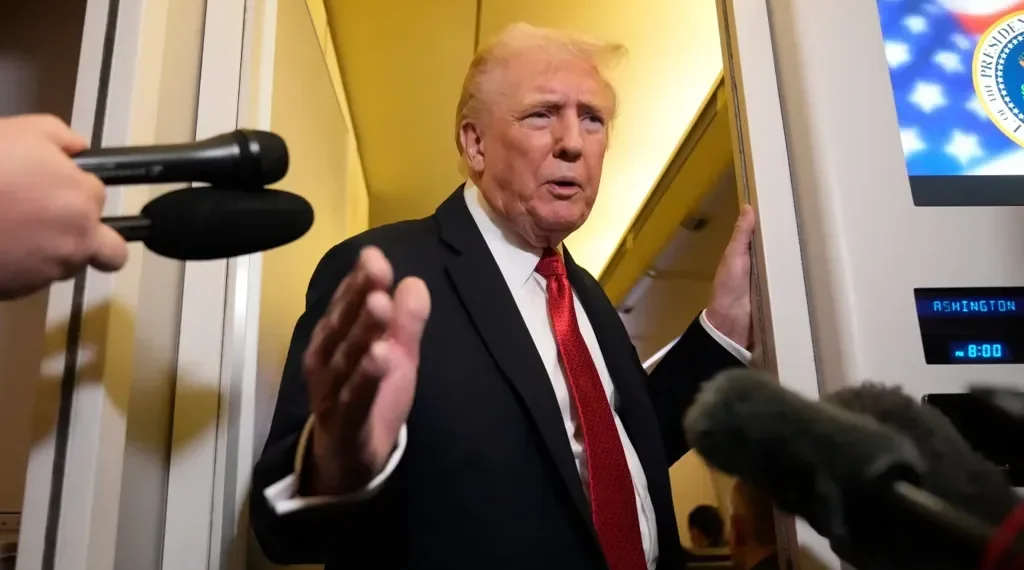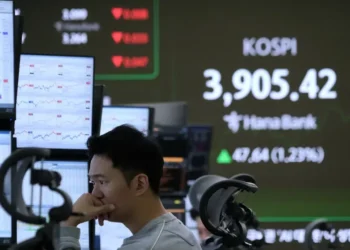President Donald Trump announced plans to consider importing beef from Argentina in a bid to reduce domestic prices for American consumers. The proposal, made while speaking to reporters aboard Air Force One on Sunday, is part of the administration’s broader effort to tackle persistent inflation ahead of the 2026 U.S. midterm elections.
Trump Says U.S. May Buy Beef from Argentina
“We would buy some beef from Argentina,” Trump said during the flight from Florida to Washington. “If we do that, that will bring our beef prices down.” The president did not specify when the purchases might begin or how much beef would be imported but emphasized the move could help ease pressure on American households.
The comment follows Trump’s recent pledge to address rising food costs, which have been a major driver of inflation and a point of concern among voters. Economists say U.S. beef prices have remained high due to a combination of factors, including drought conditions, high feed costs, and reduced imports from Mexico caused by an outbreak of a flesh-eating pest in cattle herds.
Beef Prices and Inflation Pressure
According to the U.S. Department of Agriculture (USDA), retail beef prices have climbed steadily over the past year, with consumers paying significantly more for ground beef, steaks, and roasts compared to pre-pandemic levels. The combination of declining cattle herds and global supply chain disruptions has limited market supply.
Agricultural analysts note that importing beef from Argentina, one of the world’s largest beef producers, could temporarily ease domestic supply constraints. However, some U.S. ranchers may resist the plan, citing concerns about competition, quality standards, and potential risks of introducing foreign animal diseases.
U.S.–Argentina Economic Ties Strengthened
Trump’s statement also comes as Washington deepens its financial ties with Buenos Aires. His administration has backed a $20 billion credit swap line to help stabilize Argentina’s struggling currency, the peso, amid record inflation and capital flight. The deal includes additional financing from private-sector investors and sovereign funds.
Argentina’s President Javier Milei, a close Trump ally, has pursued aggressive market reforms aimed at curbing inflation and restoring investor confidence. Milei’s government has welcomed increased trade and financial cooperation with the United States as part of its strategy to revive Argentina’s economy.
Strategic and Political Implications
For the Trump administration, expanding trade with Argentina offers both economic and diplomatic advantages. It reinforces U.S. influence in South America while providing a practical tool to address rising food costs at home. Political analysts suggest that the move could resonate with working-class voters sensitive to inflation and grocery prices.
However, critics argue that the plan could face logistical and regulatory hurdles, including compliance with USDA import standards and domestic industry pushback. “It’s a politically bold but technically complex idea,” said one former U.S. trade official. “Any imports would need to meet strict health and safety requirements before entering the American market.”
Global Agricultural Context
Argentina ranks among the top five global beef exporters, shipping large volumes to China, the European Union, and the Middle East. Its grass-fed beef is prized for quality and competitive pricing, factors that could appeal to U.S. processors seeking cost relief. The proposed imports would also signal a shift in U.S. trade priorities, reflecting growing cooperation with Latin American economies amid a changing global food landscape.
Economic Outlook
Economists say the potential impact on U.S. inflation would depend on the scale and duration of the imports. “It might provide short-term relief, but it won’t solve structural issues in the beef supply chain,” said Dr. Laura McKinney, an agricultural economist at the University of Minnesota. “Long-term solutions require investment in domestic production resilience.”
Despite uncertainties, Trump’s remarks highlight a renewed focus on food affordability as a key political and economic challenge. With inflation still hovering above the Federal Reserve’s target range, the administration’s decision could signal broader trade adjustments aimed at stabilizing prices across essential commodities.
This article was rewritten by JournosNews.com based on verified reporting from trusted sources. The content has been independently reviewed, fact-checked, and edited for accuracy, neutrality, tone, and global readability in accordance with Google News and AdSense standards.
All opinions, quotes, or statements from contributors, experts, or sourced organizations do not necessarily reflect the views of JournosNews.com. JournosNews.com maintains full editorial independence from any external funders, sponsors, or organizations.
Stay informed with JournosNews.com — your trusted source for verified global reporting and in-depth analysis. Follow us on Google News, BlueSky, and X for real-time updates.














